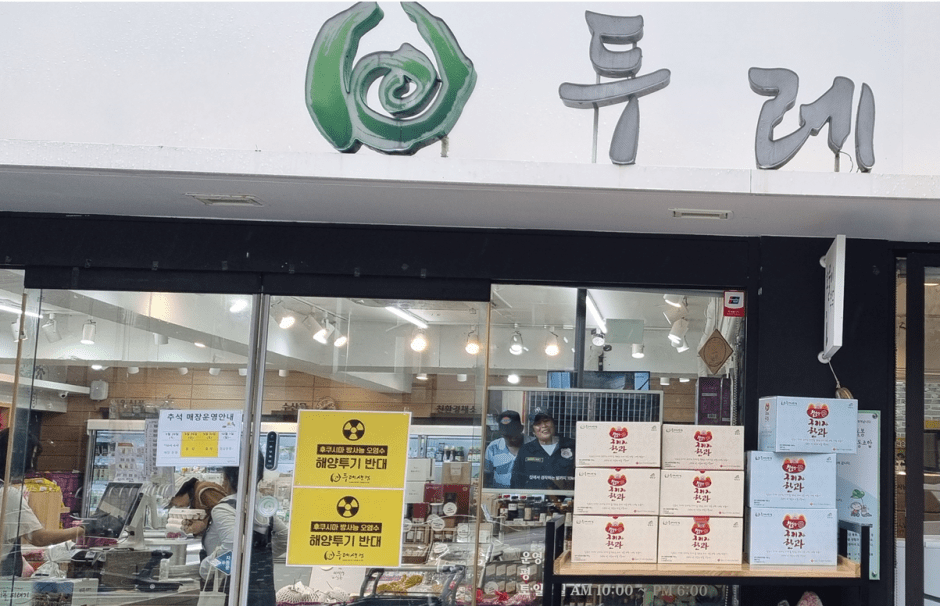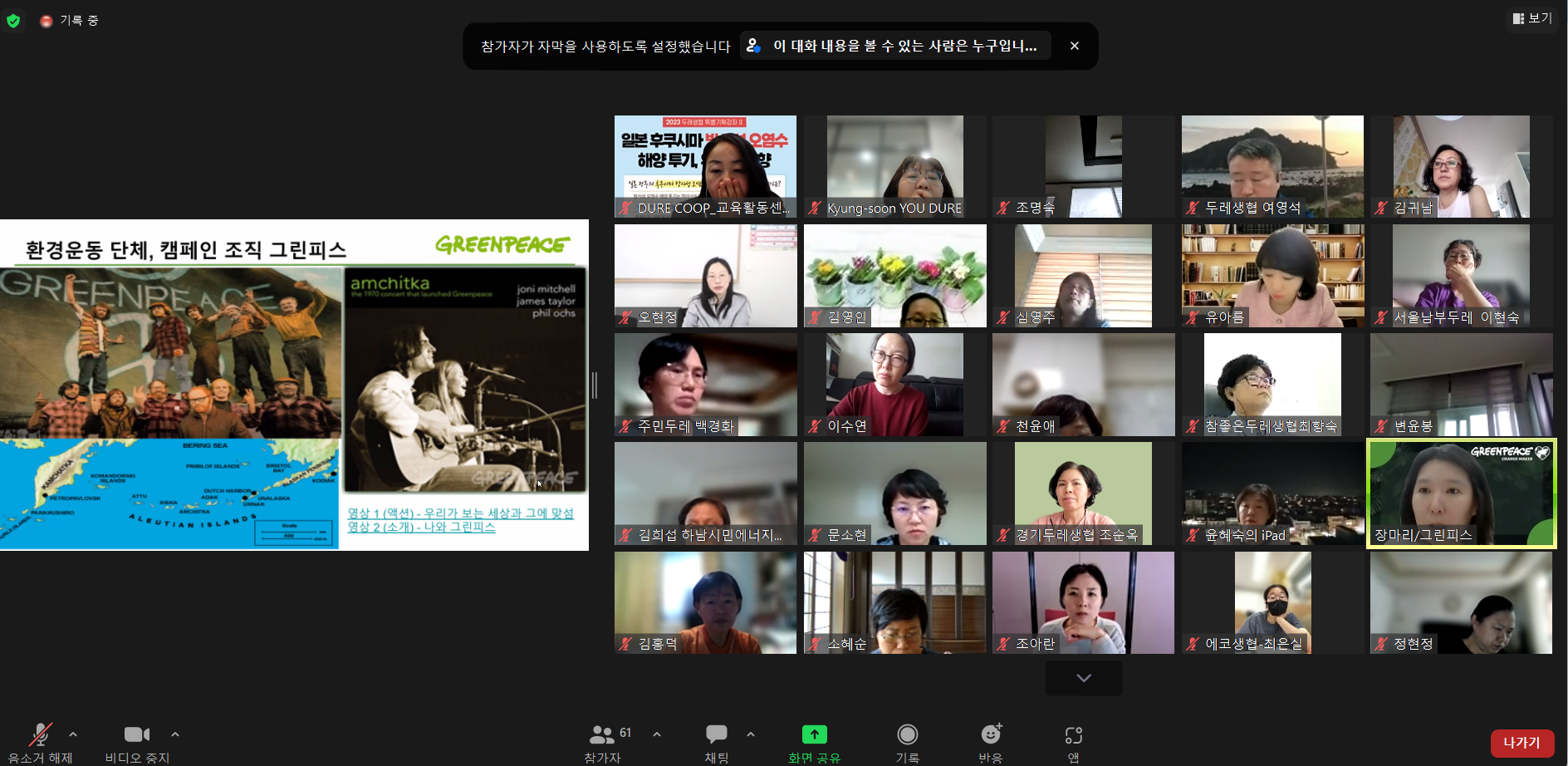Members of the Dure Consumer Cooperative Union in the Republic of Korea and of the Japan Fisheries Co-operative are speaking up against the release of treated Fukushima wastewater into the Pacific Ocean, which started in August.
The discharge of 1m tonnes of water, which is expected to take 30 to 40 years, was met with anger in neighbouring countries, with China banning Japanese seafood in retaliation. The decision to discharge the treated water has also been criticised by fishermen in Japan, many of whom are members of local fishery co-ops.
“From a national perspective, the government took full responsibility for deciding on the release,” said the chair of the Japan Fisheries Co-operative, Sakamoto, in a statement on 24 August. “However, as we, fishermen, witness this moment, our anxiety is increasing.
“For us fishermen, the only thing we can do is continue fishing with peace of mind. It’s a wish. Therefore, the government has a responsibility to ensure safety through monitoring, etc, efforts to ensure safety and peace of mind for consumers, and provide feedback to fishermen, by building a follow-up system, etc. We will continue to work closely with fishermen. We will continue to take the necessary measures even in the coming decades.”
Related: Co-ops oppose plans to release Fukushima water into the Pacific
Masanobu added that his federation was also working to address the repetitional damage that had already occurred as quickly as possible.
In July the UN International Atomic Energy Agency (IAEA) conducted a safety review, which found that Japan’s plans to release treated water stored at the Fukushima Daiichi nuclear power station into the sea were consistent with IAEA Safety Standard. The safety review concluded that the release would have a “negligible” radiological effect on people and the environment.
But environmental group Greenpeace argues that the radiological risks have not been fully assessed, and the biological impacts of tritium, carbon-14, strontium-90 and iodine-129 – to be released with the water – “have been ignored”.
While the government of the Republic of Korea has not objected to the plans, saying it accepts the study’s findings, there has been widespread criticism from the public.
Related: Dure Consumer Co-op joins Count Us In campaign on climate change
Earlier this year, Dure Consumer Cooperative Union issued a statement in which it reiterated its opposition to the Japanese government’s plan to discharge “Fukushima-contaminated water”. The co-op’s members have also signed a petition opposing the release of the Fukushima wastewater and taken part in a rally against it. Dure stores featured posters opposing the release of the treated Fukushima wastewater.

Some co-op members also attended a Greenpeace online lecture on the issue.

“As the climate crisis becomes more serious, there will be more unexpected disasters in the future,” said Dure. “How can nuclear power, which is located by the sea and is most vulnerable to flooding and typhoon damage, be an alternative to the climate crisis era? Looking at the Fukushima nuclear accident, which is causing serious aftereffects, we must now find ways to move toward denuclearisation from the perspective of the world as a human community.”
Korean consumer co-ops were set up in the 1980s to promote organic and eco-friendly local products. Since then, green issues have been the catalyst for the co-ops and their members.

